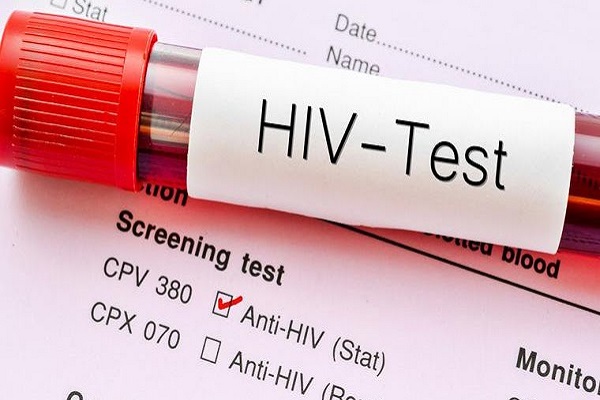Data from the 2023 national and sub-national HIV and AIDS estimates and projections showed 17, 774 people- 6,457 males and 11, 317 females- became newly infected with HIV in that year.
The number comprises 4,869 youth between 15 and 24, 1,698 children under 15, 1,520 adolescents between 10 and 19, and 16,076 adults above 15.
Dr Kyeremeh Atuahene, Director General of the Ghana AIDS Commission who disclosed this in Accra on Wednesday, said that the projection showed a 14.8 per cent decrease in new infections between 2013 and 2023
“The data indicates that Ghana has not been able to achieve its annual target of a 17 per cent reduction in new HIV infections in the last ten year,” he said.
Dr Atuahene said Ghana was expected to achieve a 41 per cent increase in the decrease of new HIV infections between 2023 and 2030.
According to the projections, 334,095 people in Ghana—115,891 males and 218,204 females—were living with HIV in 2023.
Last year, there were 17,550 children under 14, 16,381 adolescents between 10 and 19, 33,245 young adults between 15 and 24, and 316,545 adults aged 15 and up who were living with HIV.
The data showed that the HIV population increased by nine per cent between 2013 and 2023 and was expected to increase by 6.8 per cent by 2030.
Similarly, the projections show that 12,480 Ghanaians died from AIDS related illness in 2023.
Dr. Atuahene said that despite the availability of treatments that prevent the disease's progression and the deaths it causes, mortality due to AIDS continued to occur when it should not.
He said Ghana and the rest of the world are dedicated to reaching the 95-95-95 targets, which set goals such as having 95 per cent of people living with HIV aware of their status, 95 per cent of those receiving antiretroviral therapy (ART) attaining viral suppression, and 95 per cent of those receiving ART knowing their status by 2025.
Dr Atuahene said Ghana achieved 65.3 per cent for the first 95 targets in 2023, 69.4 per cent and 89.0 per cent respectively for the second and third targets.
Most of the people infected or living with HIV in the country are between the ages of 15 and 49, and they are also an economically active population.
He emphasized that stopping the AIDS epidemic in the country should be a key priority for everyone.
Latest Stories
-
Kwame Yesu’s latest project blends raw emotion with rap precision
53 minutes -
Court remands Mobile Money robbery suspect into police custody
2 hours -
BIDEC and Ghana Dance Association engages Ghana Tourism Authority on dance tourism
2 hours -
Ghana pushes forward with National AI policy through multi-stakeholder engagement
2 hours -
Mahama pays tribute to late Pope Francis
2 hours -
W/R police clamp down on crime: Suspects arrested for vehicle theft, gold robbery, galamsey
2 hours -
This Saturday on Newsfile: Chief Justice suspension and galamsey take centre stage
3 hours -
GIMPA GRASAG inaugurates study rooms, business centre to support academic work
3 hours -
Be circumspect with selection of new investors for Damang Mine – ACEP to government
3 hours -
Chieftaincy Institution in Ghana at a Crossroads – A Perspective by Andrews Kofi Anokye (KOANS)
4 hours -
Offinso highway robbery: Police mount hunt for killers of bus conductor
4 hours -
‘We will fish him out’ – DCOP Teye-Cudjoe vows to arrest soldier behind Nyinahin shooting
4 hours -
Traditional leaders laud AngloGold Ashanti’s youth dev’t initiatives in Obuasi
4 hours -
Cyra Pamela Koranteng resigns as Judicial Secretary, deputy elevated
5 hours -
Benjamin Arthur hands over as Chief Executive of Fair Wages
5 hours

